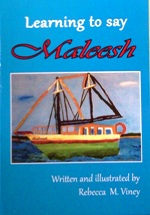
- Flickr Image by Theophilos Papadopoulos
It seems the unusual outcomes of damage to the brain receive a good deal of attention in media coverage.
Unusual outcomes of brain injury such as a person developing artistic talents or becoming a genius at mathematics, seem to grab headlines more than day to day life for people living with brain injury.
Mostly these outcomes are rare. Can this media coverage be helpful?
Before I go on -if you have not seen articles about people living with unusual outcomes – here are a couple of examples :
This article “Stroke of Genius: 10 Abilities Borne of Brain Damage” describes 10 people who developed a significant new ability after brain injury
And here “10 Fascinating People With Savant Syndrome” You might notice some of the people in each article are the same I found this quite common.
And still more. This article with illustrations “6 People Who Gained Amazing Skills From Brain Injuries” I began collecting such articles and as I read them they reinforced for me what an amazing organ our brain is.
What Does Looking at the Unusual Outcomes of Brain Injury Remind Us?
So why am I talking about it today? Joining the sensationalists?
Not quite.
It is another way to present and to develop some key understandings about the brain and brain injury:
[unordered_list style=”tick”]
- People living with brain injury do not always see the outcomes of brain injury as bad. Sometimes the damage itself can create postive outcomes.
- Outcomes of brain injury are NOT DELIBERATE behaviours. It is as a result of the damage to brain cells.
- We can learn more about the brain and brain injury in an interesting way. The articles usually carry a bit of information about the brain and brain function. I read a series of articles in the National Geographic magazine entitled “Beyond the Brain” which talked about unusual outcomes and included information about the brain and its function.
- A reminder that the brain controls EVERYTHING we do and that ANYTHING we do can be affected.
- No matter how strange, or different, it might seem – any outcome is possible whatever the cause of the brain injury .
- I know I keep going on about it – the brain is one astounding, fascinating organ.
- These media articles do engage people who might otherwise not know about brain injury.[/unordered_list]
Savant skills
 Most articles about unusual outcomes after brain injury fall into the category of Savant skills. People discovering extraordinary talents.
Most articles about unusual outcomes after brain injury fall into the category of Savant skills. People discovering extraordinary talents.
Movies are made (think ‘Rain Man’). News coverage is prolific -a small selection is included today.
One explanation of how this happens is that damage to the temporal region at the front of the brain might somehow enable us to shine at new skills.
No I would not recommend knocking out your fronto-temporal lobe to become a genius!
Eureka! When a Blow to the Head Creates a Sudden Genius This article in the Atlanta Times describes studies into how this might happen and gives examples of people experiencing unusual outcomes. While ignored at first Dr Bruce Miller, a neurologist in San Francisco, discovered ‘savant’ skills in people who had a Fronto-temporal dementia. This type of dementia affects particularly the left temporal region of the brain (located over the left ear).
Researchers from the Flinders University in Adelaide were also able to elicit new savant skills in volunteers by temporarily stopping the frontal temporal lobe from functioning.
One interesting hypothesis is that these savant abilities may be lying dormant in all of us. Still no reason to think about knocking of your fronto-temporal lobe me thinks.
Not sure I would want to do it even temporarily. Though in this article “Savant for a Day” Lawrence Osborne explains the theory and gives a personal account of rapidly increasing his drawing skills after having electromagnetic stimuli to his frontal lobe.
“A Beautiful Mind: Brain Injury Turns Man Into Math Genius” is one of many articles written about Jason Padgett who became expert at maths after a brain injury and wrote of his experience.
![Image: "Herzensschatzikomm" by user:historiograph - [1]. Licensed under Public Domain via Commons Unusual outcomes brain injury. black writing densely covering sepia coloured page](https://www.changedlivesnewjourneys.com/wp-content/uploads/Unusual-Outcomes-Hypergraphia-Herzensschatzikomm-300x234.jpg) Literally meaning ‘lots of writing’.
Literally meaning ‘lots of writing’.
I read about Alice Flaherty in a National Geographic magazine accompanied by photographs of her prolific writing on walls and all surrounding surfaces.
“On any given morning Alice Flaherty, a neurologist at Massachusetts General Hospital in Boston, is writing at her computer by 4:30 a.m. During the day she may also write on scrap paper, toilet paper, her surgical scrubs, and if nothing else is handy, on her own skin. Some of her best ideas come when she’s in the shower, so she keeps a waxed pencil there and writes on the walls. She also has a pen attached to her bicycle, just in case the muse hits her in mid-pedal stroke.” James Shreeve National Geographic.
While rare hypergraphia also finds itself popular online.
Hypergraphia is visually represented on Prezi in Hypergraphia the Writing Sickness. This display includes lists of possible causes and further references. Warning it is a bit flickery and jumpy if you have trouble with flashing movement.
 A condition where one sense evokes another sense I might see colours for the notes of music. Words floating across my vision when people are speaking.
A condition where one sense evokes another sense I might see colours for the notes of music. Words floating across my vision when people are speaking.
James Wannerton can taste words and has been featured in many articles. Here with a map of the London Underground system he describes the tastes of each. A fun and interesting use of synaesthesia.
Daniel Tammet has written a book about Synaesthesia. Synesthesia and the Poetry of Numbers by Daniel Tammet discussed here by Maria Popova at Brain Pickings (a favourite read of mine) Popova talks about Synaesthesia. Again Daniel Tammet is featured in number of media articles.
Richard E Cytowic a Professor of Neurology presents the following brief explanation: TED lesson “What Colour is Tuesday”
Newsworthy Unusual Outcomes Brain Injury
What other unusual outcomes do you find talked about in media articles?
The following are a small selection of outcomes reported in news media. Alternatively try an internet search yourself and see what you find.
Mathematical skill: The Toronto Star reviews ‘How a Brain Injury Made Me a Mathematical Marvel’ by Jason Padgett. Talking about a brain injury that made him a whiz at mathematics.
Foreign accent: The online MetroNews reports Sarah Colwin, a woman who had a stroke developed a Chinese sounding accent.
Uncontrolled emotions: Brandpoint – a site providing content for media shares this article about Delanie Wilson who after a stroke found she would laugh or cry, often at inappropriate times, and had no control over this. “Uncontrollable Laughing and Crying a Stroke Survivors Unexpected Diagnosis”.
Speaking another language: Daily News New York reported a young Australian man who awoke from a coma speaking Mandarin and now uses this talent on a television show.
Developing artistic skills: “Woman Develops Remarkable Ability to Draw After Suffering a Brain Injury”
Musical talent: The Huffington Post writes about Derek Amato who after brain injury discovered musical talents.
And Finally
So – is it sensationalism? Or is it fascination with all things brain related. Does it matter?
Maybe it is that these stories capture our imagination. They stir our curiousity. How can this happen we ask?
While I think these articles are disproportionately reported – something I have now added to! I believe media coverage of unusual outcomes brain injury can teach us more about the brain, and brain injury. For most of us they do it in a way that is more interesting than a text book.
Also I have found they are also conversation starters when people want to understand more. Or teaching tools when people ask “What about this article I read?”
What do you think?



Makes me wonder just how subjective what we constitute as “damage” is. Although I may be too deeply entrenched in critical disability theory and not know enough about the on the ground scientific mumbo-jumbo of what is happening in the brain. But it makes me wonder, are the the results of brain injury actually a result of the injury or just a result of the brain restructuring itself afterwards?
I find it interesting as an autistic person that people with brain injury seem to be cousins in many a sense of what functionality occurs in our brains. Sensory processing differences, verbal communication difficulty, motor control difficulty, disinhibition, perseveration, difficulty with social skills, on and on …
Except in the Autistic community, those of us who are part of the Neurodiversity movement, we don’t view those things as damage or loss, just as how our brain is wired differently. Naturally and differently. Even in the most “severe” cases, of someone who may have no access to verbal speech, for example – so what? Verbal communication is not the only valid form of communication. If your brain works so that mouth words are too hard, that’s the world’s problem for relying on them so much, not yours!
And then, of course, alongside these things that cause difficulty in everyday life because of how our world is structured, there are things about our brains we love. Sensory differences can lead to overload, sure, but they can also lead to intense sensory pleasures (sometimes including synesthesia), the “inability” to transition between tasks can lead to the “ability” to hyperfocus on things we love, and we have our own language of social communication and culture because ours is so different from the norms.
So, it’s interesting that “fantastic outcomes” can occur as a result of brain injury, as well. Perhaps they are less common but now I’m wondering if people who have sustained a brain injury might experience smaller scale changes for pleasure as well, it’s just a matter of perspective. In a world so ensconced in “disability is bad” and “full recovery to normality is the goal”, it might be harder to notice, even more so for an acquired disability vs. an innate one.
In the Autistic community we find that even our clearly disabling traits are just a part of our brain wiring, no more a “damage” or “benefit” than anything else, just a fact. The disabling part is on society, not us.
The brain is a fascinating, versatile, astounding thing – if it suffers an injury, it will be able to restructure its modality in order to compensate. The result, whether or not that is seen as a “damage” or “gain” could be entirely subjective, to how our society operates, what is valued, and what is accommodated. I know a person who is disabled by synesthesia because it does not allow her to drive, but of course most people see synesthesia as a cool and positive thing (as does she, she doesn’t mind that she can’t drive, but it’s still technically a disabling factor). Most people consider lack of eye contact a sign of broken functioning, but in the Autistic community we just know it is entirely subjective cultural and social value and we don’t do it because our brains process the input differently.
So I’m really wondering, just how much what we classify as the after effects of brain injury are actually the “damage” or actually just the brain changing its functioning for no better or worse to keep on keeping on. In a world that accepted neurodiversity, all forms of functioning, and accommodated disability, maybe this would all be seen differently.
Christa thankyou for providing this information and thinking. The sometimes similar outcomes of Autism and Brain Injury interests me too – the brain is such an amazing organ. You raise great points about neurodiversity – I hope we hear and learn more about neurodiversity in coming years as like many forms of diversity it can expand and enrich our community. Regards Melanie